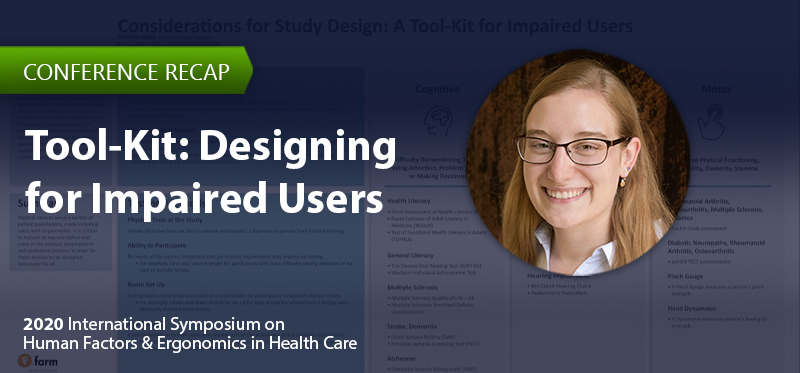At this year’s International Symposium on Human Factors and Ergonomics in Health Care (Virtual Conference), I presented a poster on “Considerations for Study Design: A Tool-Kit for Designing for Impaired Users .”
During the virtual poster presentation , I emphasized the importance of recruiting and testing with true representative end users. For some products and devices, this consists of users with impairments. The poster served as a toolkit for different methods to use or ideologies to consider when designing a study that includes impaired users. I provided samples of various ratings and scales that can be used to quantify various impairments, with a focus on the 3 main categories of cognitive, sensory, and motor impairments. These are helpful resources for not only identifying the existence of these impairments for users, but also in clarifying the various severity or breakdowns within an impairment.
To provide an example, one might use the Cochin Scale assessment, a series of questions regarding the difficulty of various tasks to measure the functional ability in a participant’s hand, to recruit participants with Rheumatoid Arthritis. Then within this assessment, the scores that the participants receive can be classified into different levels, such a mild, moderate, and severe, based on prior research and applicability for each specific study.
The poster also detailed how users' impairments affect usability study recruiting and usability tests themselves. This includes ensuring that the study design continues to be inclusive for participants with impairments, even as they arrive at a study to participate. This can be through awareness of expected limitations, such as planning for breaks for those who struggle to pay attention or ensuring that testing rooms have wheelchair accessible tables for wheelchair users. By understanding the importance of including these impaired user groups and finding representative users, as well as maintaining an awareness of the impact that their impairments may have, products can be designed inclusively for all.
